Intersectionality Summer Intensive™
Get Intense About Intersectionality
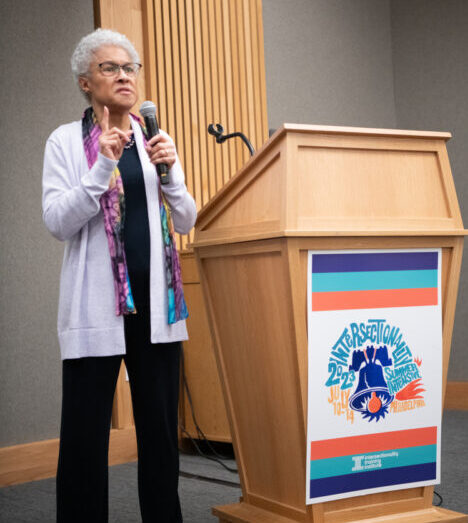
Dr. Patricia Hill Collins delivering the ISI 2023 Keynote Address
Spend an engaging and intensive 5 days with a community of researchers, practitioners, and students committed to using intersectionality to transform health equity research.

ISI 2026 information will be announced in August 2025.
To facilitate opportunities for interaction between and among ISI participants and facilitators, mentorship, collaboration, and socialization, we keep ISI intentionally small: just 50 or so spots.
Oh there are so many! As a result of attending ISI, you’ll:
- Gain an in-depth understanding of intersectionality as theoretical framework and methodological tool for health equity research and critical praxis.
- Increase your proficiency to develop and conduct rigorous qualitative, quantitative, and mixed methods intersectionality research with fidelity to core themes of intersectionality.
- Learn LOTS of important information to help you write stronger intersectionality grant proposals and articles.
- Have opportunities for mentorship from ISI facilitators, past ISI cohort members and your peers.
- Make new friends, meet new colleagues, and find collaborators for grant proposals and publications.
- Join an engaging and thriving community of people passionate and committed to intersectionality, social justice, and health equity.
- Have countless opportunities to interact with, learn from, and be mentored by an engaging team of leading intersectionality researchers and community activists using intersectionality as a tool for critical praxis.
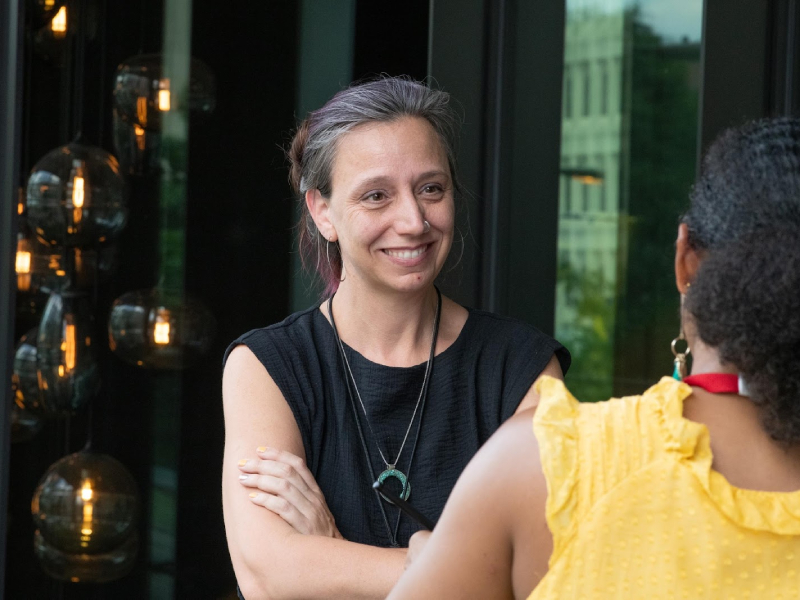
It runs from Monday through Friday, roughly 9 to 5 pm each day. It includes a blend didactic and interactive activities to engage and enhance your learning. These include, but are not limited to:
- Large group sessions with presentations of core material and opportunities for Q&A
- Small group “clinics” focused on specific topics (e.g., “pain points,” dissertations)
- Small group qualitative and quantitative research sessions
- Small group academic-community partner conversations
- Opportunities for individuals with facilitators and peer-mentoring.
We issue Certificates of Completion on the closing day of ISI.

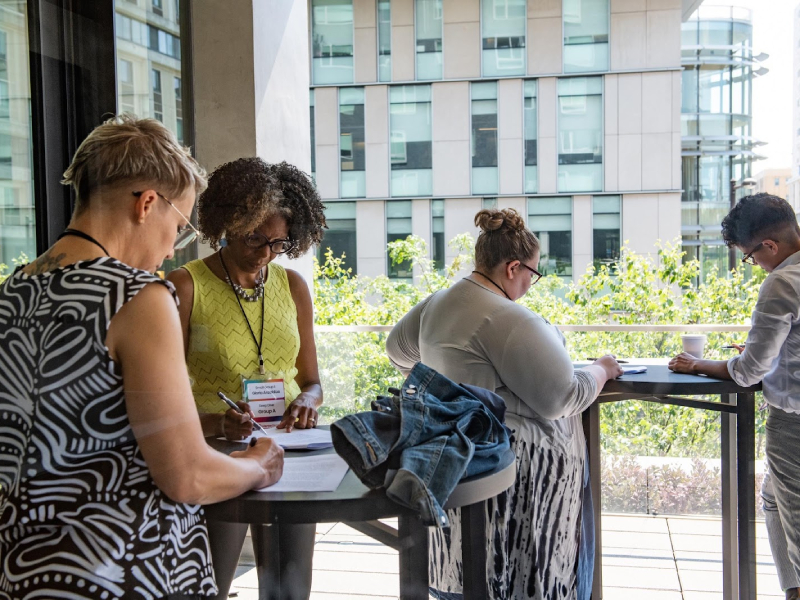
Participant evaluations and feedback from ISI 2022, ISI 2023, and ISI 2024 were stellar. By all accounts, our ISI program is excellent and we are so proud of it. Thus, other than a few tweaks to keep things fresh, a review of the ISI 2024 agenda will provide you with a pretty good idea of what you can expect at ISI.

Oh, they say the most wonderful things about their experiences at ISI, things like:
“The Intensive brought together such an inspiring group of people dedicated to the pursuit of scientific inquiry for the advancement of social justice. In doing so, it reminded me that we are not alone, that we are connected to a history of incredible scholars and activists who have fought against these oppressive systems so that we can have the opportunity to deconstruct these systems further and build a better world. It reconnected me with the true reasons I pursued an academic path in the first place and empowered me to continue forward in line with my values. I simply cannot understate how powerful that is.” M Pease, Doctoral Student, ISI 2023
The summer intensive exceeded all of my expectations (and I had heard it was amazing!). The content was exceptional — I now feel like I can apply intersectionality to grant proposals and do research more responsibly that benefits communities. I enjoyed the connections with each other. I appreciated the thoughtful and helpful feedback and learning about everyone’s incredible work. I also loved how much we laughed and had fun amid all the learning and growth. Leah Marcotte, MD, Assistant Professor, University of Washington, ISI 2023

See what they say about ISI after participating:
Doctoral Students: ISI 2023 Cohort
Courtney Gardner, MS
Department of Population Health Sciences
University of Central Florida
Deja Knight, MPH
Social & Behavioral Interventions Program, Department of International Health
Johns Hopkins Bloomberg School of Public Health
Dielle, Lundberg, MPH
School of Public Health
University of Washington
Research Scientist: ISI 2022 Cohort
Rodrigo Aguayo-Romero, PhD
Research Scientist
Whitman-Walker Institute
Postdoctoral Fellow: ISI 2022 Cohort
Elle Lett, PhD, AM
Clinical Assistant Professor
Heath Systems and Population Health
School of Public Health
University of Washington
Fees for ISI are announced in August of the previous year.
Your registration includes the following:
- Resources and materials for each training session
- Lunch and a welcome networking reception
The registration does NOT cover:
- Travel and lodging expenses
- Local transportation
- Breakfast and Dinner

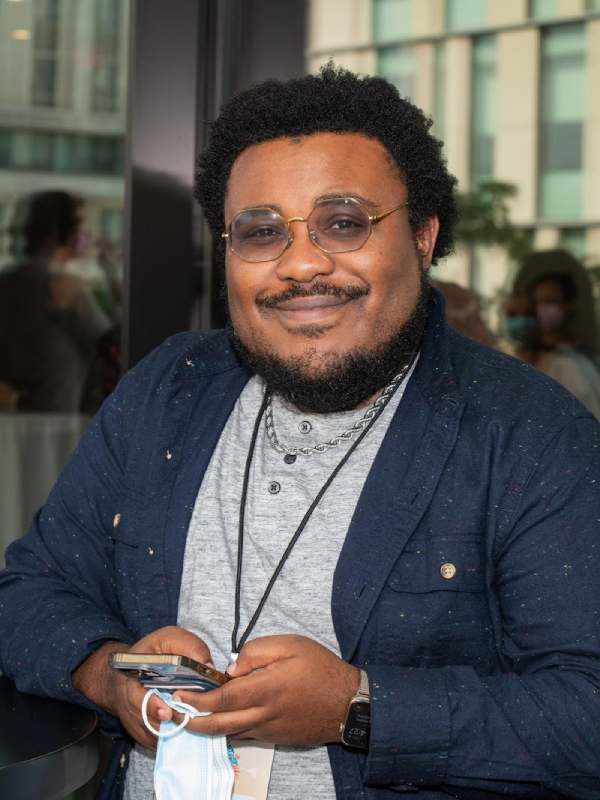
We are not yet able to offer scholarships, but hope to be able to do so in the future. Most ISI participants are supported by funds from their institutions. Here’s a template that you can use to request support from your institution (e.g., Department Chair, Dean of Research, Supervisor). Although we can’t guarantee that your request will be successful, we believe that our template will increase your chances for success.
We're thrilled to be welcoming back to the ISI Dr. Patricia Hill Collins, Distinguished University Professor Emerita at the University of Maryland.
Professor Collins is a social theorist whose research and scholarship have examined issues of race, gender, social class, sexuality and/or nation. Her first book, Black Feminist Thought: Knowledge, Consciousness, and the Politics of Empowerment (Routledge), published in 1990, with a revised tenth year anniversary edition published in 2000, won the Jessie Bernard Award of the American Sociological Association (ASA) for significant scholarship in gender, and the C. Wright Mills Award of the Society for the Study of Social Problems. Her second book, Race, Class, and Gender: An Anthology, 8th ed. (2013), edited with Margaret Andersen, is widely used in undergraduate classrooms in over 200 colleges and universities. Black Sexual Politics: African Americans, Gender, and the New Racism (Routledge, 2004) received ASA’s 2007 Distinguished Publication Award. Her other books include Fighting Words: Black Women and the Search for Justice (University of Minnesota Press, 1998); From Black Power to Hip Hop: Racism, Nationalism, and Feminism (Temple University Press 2005); Another Kind of Public Education: Race, Schools, the Media and Democratic Possibilities (Beacon Press, 2009); the Handbook of Race and Ethnic Studies, edited with John Solomos (Sage, 2010); and On Intellectual Activism (Temple University Press, 2012). She has published many articles in professional journals such as the Journal of Speculative Philosophy, Qualitative Sociology, Ethnic and Racial Studies, the American Sociological Review, Signs, Sociological Theory, Social Problems, and Black Scholar, as well as in edited volumes. Professor Collins has taught at several institutions, held editorial positions with professional journals, lectured widely in the United States and abroad, served in many capacities in professional organizations, and has acted as consultant for a number of businesses and community organizations. In 2008, she became the 100th President of the American Sociological Association, the first African American woman elected to this position in the organization’s 104-year history. Professor Collins also holds an appointment as the Charles Phelps Taft Emeritus Professor of Sociology within the Department of African American Studies at the University of Cincinnati.


Lisa Bowleg, PhD, MA
ITI Founder and CEO
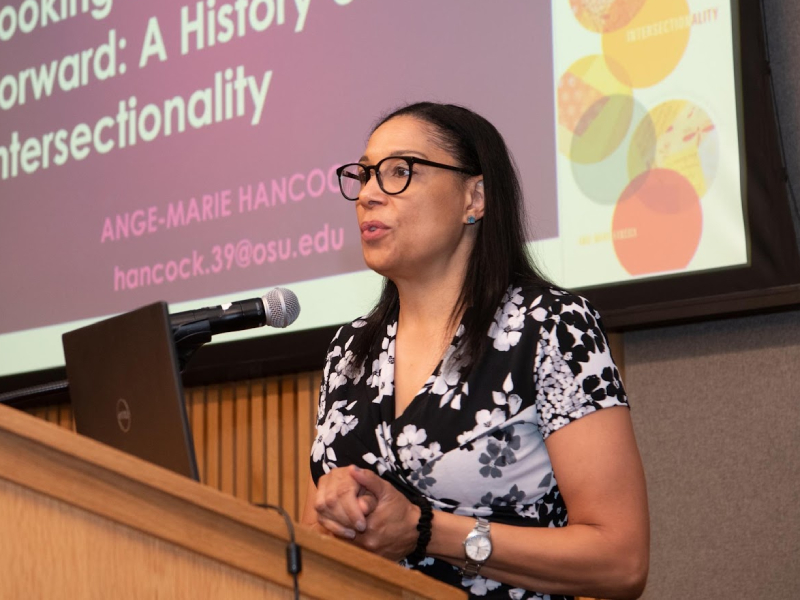
Ange-Marie Hancock, PhD
Academic Executive Director, Kirwan Institute
Ohio State University

Stephanie Cook, DrPh, MPH
Associate Professor of Social and Behavioral Sciences
Associate Professor of Biostatistics

Dougie Zubizaretta, MS
PhD Candidate, Harvard University

Chioma Nnaji, MPH, MEd
Program Director
Multicultural AIDS Coalition (MAC)

Dázon Dixon Diallo, MPH, DHL
Founder and President
SisterLove, Inc.
You should! We welcome applications from multidisciplinary researchers and practitioners at all career stages, and graduate at all career stages, and graduate students with varying degrees of knowledge and experience with intersectionality research, but who share an interest in building or enhancing their capacity to apply intersectionality to qualitative, quantitative, and mixed methods health equity research. ISI is ideally suited for:
- Faculty, postdoctoral, and other researchers with grant or other institutional support such as research training grants (e.g., NIH K-series awards, T32) or grants (e.g., NIH R-series awards) or institutional funding for professional or research development.
- Applicants from government (e.g., health departments) and non-profit and/or community-based organizations; and
- Doctoral students with department or other institutional support
Vision: Even if you don’t have lots of knowledge or experience with intersectionality, we want to know your vision about your plans to apply intersectionality to your current or future work. We want you to articulate why you’re applying to ISI and how the ISI will help get you accomplish your professional goals.
Research: Although ISI does address the application of intersectionality to health equity policy and practice, the program is primarily and heavily focused on research. Thus, strong applications are those that detail how ISI will help you with the intersectionality research that you are doing or plan to do.
Be thoughtful. The application is short and straightforward. Because of limited spaces to enter information, we find that applications where people have taken the time to carefully consider and craft their answers fare better than those where people just casually respond to the questions.
We will notify you of whether you have been accepted early in the new year. Your acceptance letter will include a contract with terms and conditions for you to review and sign. Payments are generally due upon receipt of the acceptance, but the date can be extended.
Note that we do not offer refunds or cancellation fees. If an unavoidable incident occurs which keeps you from attending the event, we will work with you depending on the situation. For example, we may offer a credit toward next year's event or other ITI programs over the next 12 months.
We encourage you to re-apply the following year. We have such a limited number of spots and receive more applications than we can accommodate. Thus, the reason that your application may not be accepted could be the result of limited available spots, and our desire to ensure that the cohort is diverse by intersectional positions, disciplines, professional roles (e.g., research, practitioners), level of knowledge and experience with intersectionality.
We’d be happy to hear from you. Please email us at info@intersectionalitytraining.com

